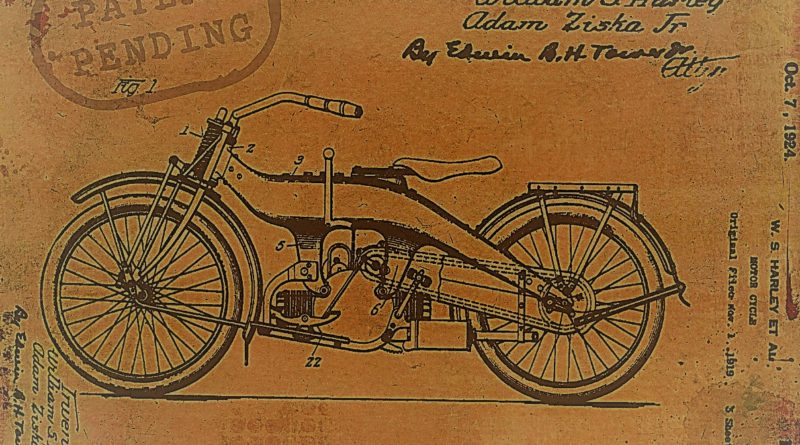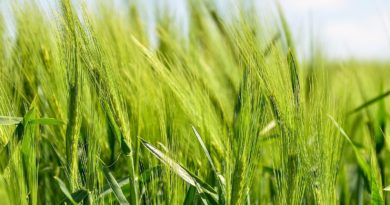Patents Law
PATENTS LAW
The Patents Act was enacted in the year 1970. Recently it was amended extensively in the year 2005.
‘patent’ means a patent for any invention granted under the Act;
‘invention’ means a new product or process involving an inventive step and capable of industrial application;
‘inventive step’ means a feature of an invention that involves technical advance as compared to the existing knowledge or having economic significance or both and that makes the invention not obvious to a person skilled in the art;
‘capable of industrial application’, in relation to an invention, means that the invention is capable of being made or used in an industry;
‘new invention’ means any invention or technology which has not been anticipated by publication in any document or used in the country or elsewhere in the world before the date of filing of patent application with complete specification, i.e. the subject matter has not fallen in public domain or that it does not form part of the state of the art;
Inventions under the Act donot include the following:
- an invention which is frivolous or which claims anything obviously contrary to well established natural laws.
- an invention the primary or intended use or commercial exploitation of which could be contrary to public order or morality or which causes serious prejudice to human, animal or plant life or health or to the environment
- the mere discovery of a scientific principle or the formulation of an abstract theory or discovery of any living thing or non-living substance occurring innatur;
- the mere discovery of a new form of a known substance which does not result in the enhancement of the known efficacy of that substance or the mere discovery of any new property or new use for a known substance or of the mere use of a known process, machine or apparatus unless such known process results in a new product or employs at least one new reactant.
- a substance obtained by a mere admixture resulting only in the aggregation of the properties of the components thereof or a process for producing such substance;
- the mere arrangement or re-arrangement or duplication of known devices each functioning independently of one another in a known way;
- a method of agriculture or horticulture;
- any process for the medicinal, surgical, curative, prophylactic diagnostic, therapeutic or other treatment of human beings or any process for a similar treatment of animals to render them free of disease or to increase their economic value or that of their products.
- plants and animals in whole or any part thereof other than micro-organisms but including seeds, varieties and species and essentially biological processes for production or propagation of plants and animals;
- a mathematical or business method or a computer program per se or algorithms;
- a literary, dramatic, musical or artistic work or any other aesthetic creation whatsoever including cinematrographic works and television productions;
- a mere scheme or rule or method of performing mental act or method of playing game;
- a presentation of information;
- topography of integrated circuits;
- an invention which, in effect, is traditional knowledge or which is an aggregation or duplication of known properties of traditionally known component or components.
No patent shall be granted in respect of an invention relating to atomic energy falling within sub-section (1) of section 20 of the Atomic Energy Act, 1962 (33 of 1962).
Persons entitled to apply for patents
- any person claiming to be the true and first investor of the invention;
- any person being the assignee of the person claiming to be the true and first inventor in respect of the right to make such an application;
- by the legal representative of any deceased person who immediately before his death was entitled to make such an application.
Term of Patent
The term of every patent granted, after the commencement of the Patents (Amendment) Act, 2002, and the term of every patent which has not expired and has not ceased to have effect, on the date of such commencement, under this Act, shall be twenty years from the date of filing of the application for the patent.
A patent of addition shall be granted for a term equal to that of the patent for the main invention, or so much thereof as has not expired, and shall remain in force during that term or until the previous cesser of the patent for the main invention and no longer.
Revocation of Patents:
Any patent whether granted before or after the commencement of this Act, may, be revoked on a petition of any person interested or of the Central Government by the Appellate Board or on a counterclaim in a suit for infringement of the patent by the High Court on many grounds like :
- the invention is already claimed in a valid claim of earlier priority date contained in the complete specification of another patent granted in India;
- the patent was granted on the application of a person not entitled under the provisions of this Act to apply.
- the patent was obtained wrongfully in contravention of the rights of the petitioner
- the subject of any claim of the complete specification is not an invention
- the invention so far as claimed in any claim of the complete specification is not new, having regard to what was publicly known or publicly used in India before the priority date of the claim
- the invention is obvious or does not involve any inventive step
- the invention is not useful;
- the complete specification does not sufficiently and fairly describe the invention and the method by which it is to be performed
- the scope of any claim of the complete specification is not sufficiently and clearly defined or that any claim of the complete specification is not fairly, based on the matter disclosed in the specification;
- the patent was obtained on a false suggestion or representation;
- subject is not patentable under this Act;
- the applicant for the patent has furnished information which in any material particular was false to his knowledge;
- the applicant contravened any direction for secrecy
- the complete specification does not disclose or wrongly mentions the source or geographical origin of biological material used for the invention;
- the invention was anticipated having regard to the knowledge available within any local or indigenous community.
Register of patents and particulars to be entered therein-
There shall be kept at the patent office a register of patents, wherein shall be entered
- the names and addresses of grantees of patents;
- notifications of assignments and of transmissions of patents, of-licences under patents, and of amendments, and revocations of patents; and
- particulars of such other matters affecting the validity or proprietorship of patents as may be prescribed.
An assignment of a patent or of a share in a patent, a mortage, licence or the creation of any other interest in a patent shall not be valid unless the same were in writing and the agreement between the parties concerned is reduced to the form of a document embodying all the terms and conditions governing their rights and obligations and duly executed.
Suits
Suit for infringement of a patent shall not be instituted in a court inferior to a district court having jurisdiction to try the suit: If a counter-claim for revocation of the patent is made by the defendant, the suit, along with the counter-claim, shall be transferred to the High Court for decision.
Any person may institute a suit for a declaration that the use by him of any process, or the making, use or sale of any article by him does not, or would not, constitute an infringement of a claim of a patent against the patentee.
Defences
- every ground on which a patent may be revoked shall be available as a ground for-defence.
- In any suit for infringement of a patent by the making, using or importation of any machine, apparatus or other article or by the using of any process or by the importation, use or distribution of any medicine or drug, it shall be a ground for defence that such making, using, importation or distribution is in accordance with any one or more of the conditions specified in section 47.
For the purposes of this Act —
(a) any act of making, constructing, using, selling or importing a patented invention solely for uses reasonably relating to the development and submission of information required under any law for the time being in force, in India, or in a country other than India, that regulates the manufacture, construction, use, sale or import of any product;
(b) importation of patented products by any person from a person who is duly authorised under the law to produce and sell or distribute the product, shall not be considered as an infringement of patent rights.
Reliefs
The reliefs which a court may grant in any suit for infringement include an injunction and, at the option of the plaintiff either damages or an account of profits.
The court may also order the infringing goods shall be seized, forfeited or destroyed, as the court deems fit under the circumstances of the case.
In a suit for infringement of a patent, damages or an account of profits shall not be granted against the defendant who proves that at the date of the infringement he was not aware and had no reasonable grounds for believing that the patent existed.
Penalties
Contravention of secrecy provisions relating to certain inventions
If any person fails to comply with any secrecy directions relating to inventions relevant for defence purposes, or makes or causes to be made an application for the grant of a patent outside India without the authority of a written permit from the Controller, he shall be punishable with imprisonment for a term which may extend to two years, or with fine, or with both.
Unauthorised claim of patent rights
If any person falsely represents that any article sold by him is patented in India or is the subject of an application for a patent in India, he shall be punishable with fine which may extend to one lakh rupees.
Offences by companies
If the person committing an offence under this Act is a company, the company as well as every person in charge of, and responsible to, the company for the conduct of its business at the time of the commission of the offence shall be deemed to be guilty of the offence and shall be liable to be proceeded against and punished accordingly
PROVIDED that nothing contained in this sub-section shall render any such person liable to any punishment if he proves that the offence was committed without his knowledge or that he exercised all due diligence to prevent the commission of such offence.
Appellate Board
The Appellate Board established under section 83 of the Trade Marks Act, 1999 shall be the Appellate Board for the purposes of the Act.
Appeals to Appellate Board
No appeal shall lie from any decision, order or direction made or issued under this Act by the Central Government, or from any act or order of the Controller for the purpose of giving effect to any such decision, order or direction.
An appeal shall lie to the Appellate Board from any decision, order or direction of the Controller or Central Government under sections 15, 16,17, 18,19, 20, (4) 25, 28, 51, 54, 57, 60, 61, 63, 66, sub-section (3) of section 69, 78, subsections (1) to (5) of section 84, 85, 88, 91, 92 and 94.
Procedure and powers of Appellate Board.
The relevant provisions the Trade Marks Act, 1999 apply to the Appellate Board in the discharge of its functions under this Act as they apply to it in the discharge of its functions under the Trade Marks Act, 1999.
General provisions regarding Patents:
- Patent shall be dated as of the date on which the application for patent was filed. But no suit or other proceeding shall be commenced or prosecuted in respect of an infringement committed before the date of publication of the application.
- Every patent shall be in the prescribed form and shall have effect
throughout India.
- A patent shall be granted for one invention only.
- Term of every patent granted, after the commencement of the Patents (Amendment) Act, 2002, and the term of every patent which has not expired and has not ceased to have effect, on the date of such commencement, under this Act, shall be twenty years from the date of filing of the application for the patent.
- A patent shall cease to have effect notwithstanding anything therein or in this Act on the expiration of the period prescribed for the payment of any renewal fee, if that fee is not paid within the prescribed period or within such extended period as may be prescribed.
- On cessation of the patent right due to non-payment of renewal fee or on the expiry of the term ofpatent, the subject matter covered by the said patent shall not be entitled to any protection.
General principles applicable to working of patented inventions –
- patents are granted to encourage inventions and to secure that the inventions are worked in India on a commercial scale and to the fullest extent that is reasonably practicable without undue delay;
- Patents are not granted merely to enable patentees to enjoy a monopoly for the importation of the patented article;
- protection and enforcement of patent rights contribute to the promotion of technological innovation and to the transfer and dissemination of technology, to the mutual advantage of producers and users of technological knowledge and in a manner conducive to social and economic welfare, and to a balance of rights and obligations;
- patents granted do not impede protection of public health and nutrition and should act as instrument to promote public interest specially in sectors of vital importance for socio-economic and technological development of India;
- patents granted do not in any way prohibit Central Government in taking measures to protect public health;
- patent right is not abused by the patentee or person deriving title or interest on patent from the patentee, and the patentee or a person deriving title or interest on patent from the patentee does not resort to practices which unreasonably restrain trade or adversely affect the international transfer of technology;
- patents are granted to make the benefit of the patented invention available at reasonably affordable prices to the public



